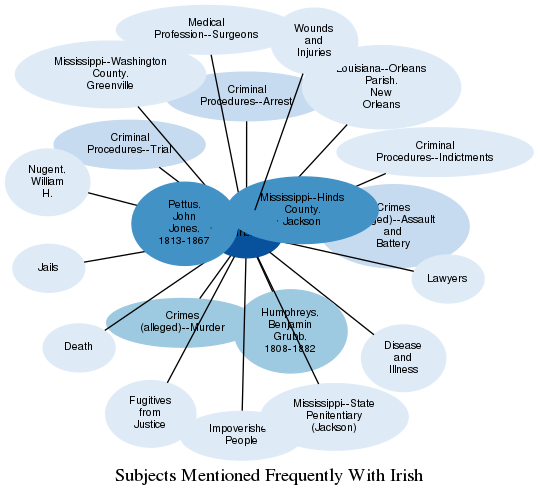Description
The Cambridge Dictionary defines the Irish nationality as "belonging to or relating to Ireland, its people, or its language." (Cambridge Dictionary) While Irish people immigrated to the United States throughout the colonial period, their numbers skyrocketed in the nineteenth century. Before the 1830s, most Irish immigrants were Protestant Christians from Northern Ireland, but during the 1830s and 1840s Catholics from southern Ireland composed the overwhelming majority of Irish immigrants to the U. S. Cheaper, easier transportation, economic strain, overpopulation, and finally the Irish Potato Famine of the mid-1840s made life difficult for impoverished farmers in Ireland, pushing many to seek a new life and new fortunes in the U. S. Many Irish immigrants remained impoverished upon relocating, as few possessed trade skills or more than elementary educations. Many Irish immigrants formed ethnic communities primarily in large urban centers like New York and New Orleans to preserve Irish language, religion, and culture and to offer reciprocal communal assistance. Irish Americans maintained a complicated relationship to Americans of color in the nineteenth century. While many Irish Americans often lived and interacted in close proximity to African Americans and Chinese Americans, competition for living and working spaces often pitted them against each other. Many Irish Americans therefore adopted American racism as a means of advancement, arguing that, though non-native born and in certain cases Catholic, they at least had white skin. This stance appears most clearly in the New York Draft Riot of 1863, in which mostly Irish American mobs attacked African American people, their businesses, and homes in response to the Emancipation Proclamation in tandem with the Union Army's draft. Regardless, many Irish American communities, particularly Catholics, in the nineteenth century faced extreme nativism, or the fear of and discrimination against those not born in the U. S. Irish Americans nonetheless served in great numbers during the American Civil War and won acclaim for their actions. Irish Americans also composed a disproportionate percentage of American Catholics and were incredibly influential in the development of the Catholic Church in the U. S. Ultimately, Irish Americans, while often maintaining a strong sense of Irish nationalism, wielded an enormous influence on American culture, religion, and politics throughout the nineteenth century and beyond (Encyclopedia of the United States in the Nineteenth Century, Vol. 2, 68-73).
See also: https://www.loc.gov/classroom-materials/immigration/irish/
Related Subjects

The graph displays the other subjects mentioned on the same pages as the subject "Irish". If the same subject occurs on a page with "Irish" more than once, it appears closer to "Irish" on the graph, and is colored in a darker shade. The closer a subject is to the center, the more "related" the subjects are.